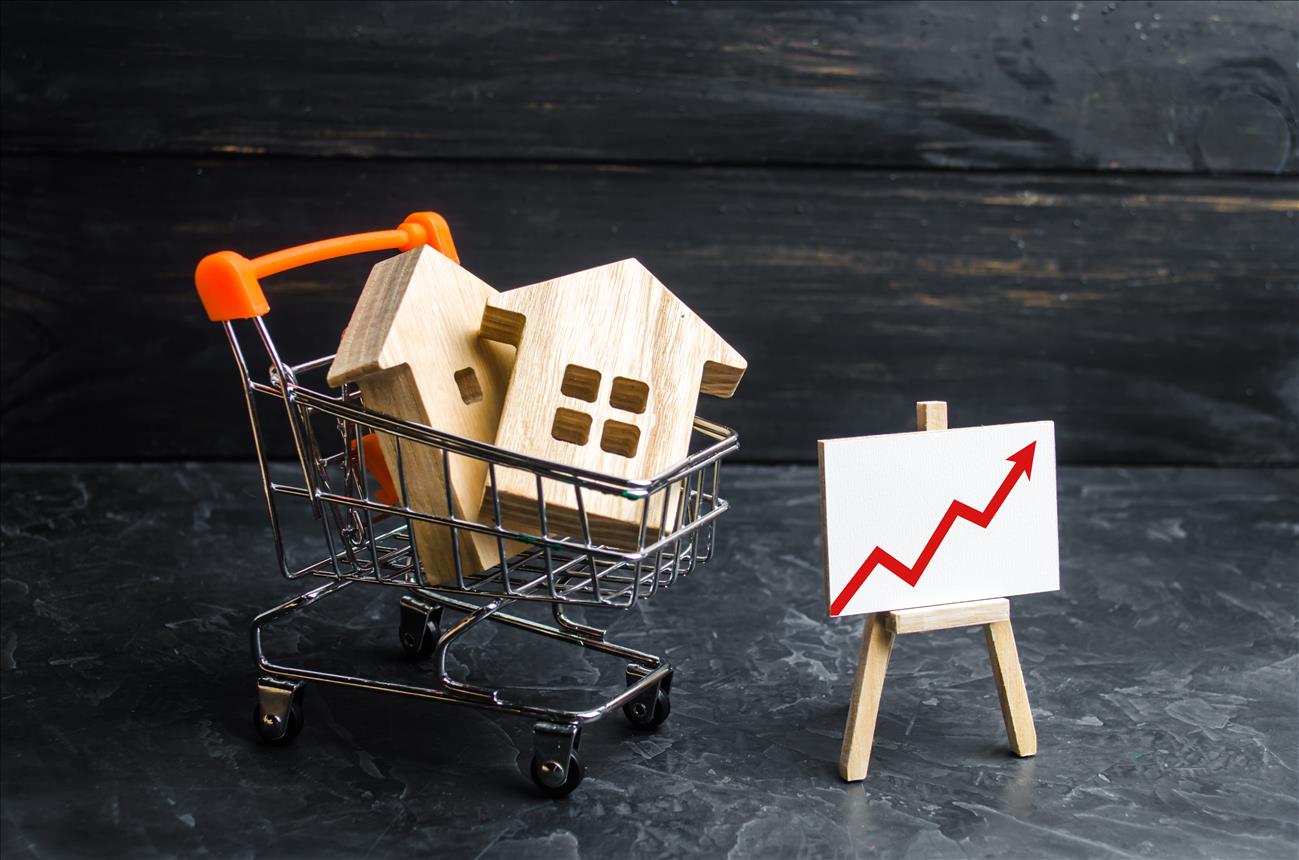Tariffs have injected a lot of uncertainty into the economy, and the resulting turbulence could have a huge impact on the housing market. Buyers who were waiting for mortgage rates to fall or debating whether it’s cheaper to build or buy a house now have to take fluctuating tariffs into consideration. Even if you have a mortgage pre-approval in hand and an experienced real estate agent advising you, there’s no clear way forward right now.
A lot of pessimism has already set in; one recent survey found that 70% of Americans are already concerned about a potential crash in the housing market. If you’re thinking about buying a home in 2025, here are some of the most likely ways that tariffs could impact your decision.
New Homes Will Likely Get More Expensive
Many components of newly constructed homes are set to become more costly under tariffs. Steel, aluminum, gypsum (one of the main components of drywall), lumber, flooring, granite, marble, stone tile, HVAC systems, materials for plumbing and electrical systems, and home appliances are commonly imported from countries like Canada, Mexico, and China. All of those items would become more expensive under tariffs.
While American homebuilders could theoretically find different suppliers, forging new supply chains will take time, and there are capacity concerns. For example, if U.S. builders want to replace their imported Canadian lumber with lumber sourced from the U.S., they might be in for a long wait, since U.S. sawmills don’t necessarily have a lot of excess capacity they can immediately put into production.
Home Repairs and Renovations Will Also Get Costlier
For all the same reasons that new construction could get more expensive, home renovations and repairs could become costlier. That could create some tough decisions for homeowners looking to update their homes before putting them on the market.
If homeowners aren’t able to refresh their homes before putting them on the market or decide against it because of the price tag, that could make their home less enticing, especially in today’s slower market. For buyers, that means that you may have a lot of leverage in negotiations if you like a home’s bones but not its details.
Some Sellers Could Be Very Motivated
Consumer sentiment is pretty negative, in large part due to tariffs. Many Americans think a recession and a crash in the housing market could happen in the next year. For sellers who want to access their home equity before it’s (theoretically) destroyed by a decline in home prices, that means the time to sell is right now.
A seller who is under time pressure gives up a lot of negotiating power to the buyer. Buyers who are dealing with highly motivated sellers are in a position to extract a lot of concessions, so take a hard line at the negotiating table and you could get a great deal.
Of course, if their predictions are correct, you could be buying at the top of the market-- but every investment, even one as historically safe as buying a home, has some inherent risk.
Mortgage Rates Will Fluctuate
Mortgage rates are highly influenced by the yield on the 10-year Treasury bond. In times of economic uncertainty, the yield on 10-year T-bonds generally falls, which translates to lower mortgage rates for home buyers.
That hasn’t happened during this period of economic turbulence, for reasons that are complicated. The simple explanation is that when the economy looks shaky, investors traditionally pull their money out of the stock market and invest it in Treasury bonds, which have historically been regarded as an extremely safe investment. More money going into the bond market will drive those bond yields down, which also leads to lower mortgage rates.
But in this tariff era, bond yields have actually risen, as some foreign investors have sold some of their stockpiled Treasury bonds. While this could be seen as simple retaliation for tariffs, many experts have interpreted it as a sign of low confidence in the U.S. economy— in other words, nervous investors don’t feel safe putting their money into U.S. stocks or bonds. As a consequence, bond yields have risen in order to attract some of that money, and mortgage rates have remained high.
Regardless of the motivation, it’s led to elevated and unstable mortgage rates for U.S. homebuyers. If you got a home loan in the past month, your interest rate could have risen or dropped by nearly a full percentage point compared to the previous day, depending on when you signed.
If the economic uncertainty continues, buyers can expect mortgage rates to keep fluctuating.
The Market Could Become Historically Slow
According to a recent report, the U.S. housing market is moving at its slowest pace in more than a decade and a half. Depending on the economy's trajectory, it could slow down even more.
Home buying decisions often depend on job stability, so if tariffs produce a larger economic downturn that leads to higher unemployment, many potential buyers would have to delay their home purchases. If mortgage rates rise, that would sideline more buyers. And if tariff-related material costs reduce the number of homes being built, that constricted supply could drive home prices up even more.
The implications for buyers are pretty clear. If you have the means and the determination to buy in this market, you could get a great deal. With little competition, you would be operating in a strong buyer's market. And your home-buying dollar could go a lot further than under normal circumstances; if you were debating living in Philadelphia vs. living in New York, a historically slow buyer's market might give you the leverage you need to get into the more expensive market at a bargain price.
Are You a Professional?
Requests for your services are coming in left and right. Let’s connect and grow your business, together.


